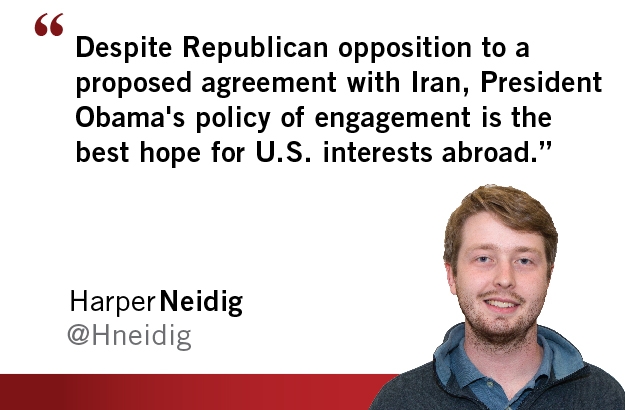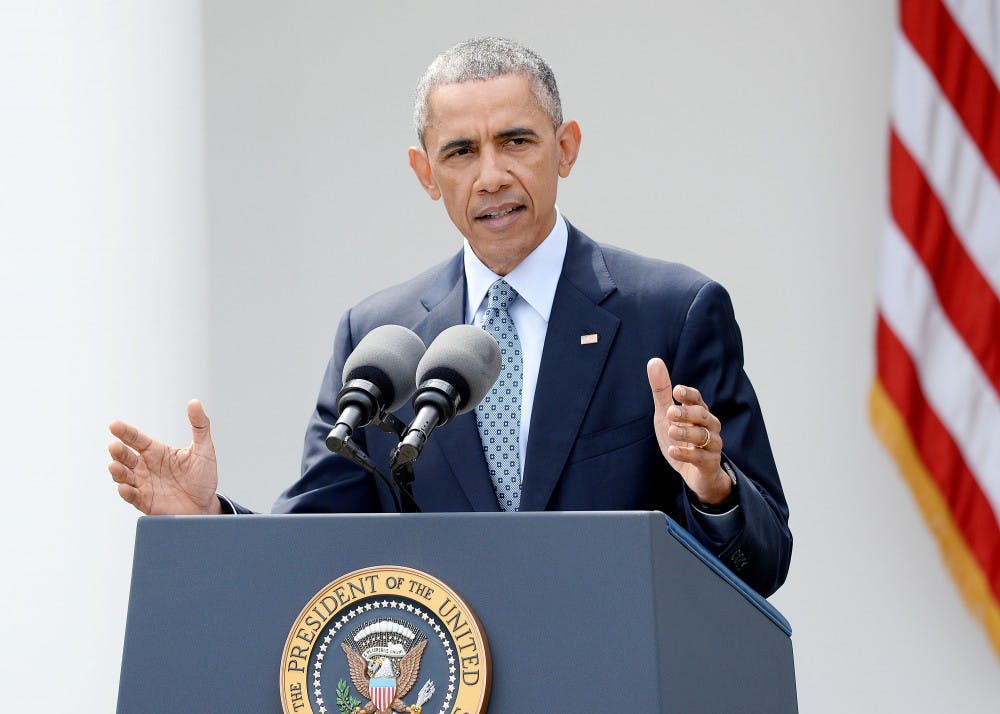In a debate during the 2008 Democratic presidential primary, President Barack Obama was asked if he would be willing to meet with the leaders of rogue nations. His simple answer, “I would,” was criticized by both Republicans and other Democrats alike. His main opponent, and future secretary of state, Hillary Clinton called it “naïve” and “irresponsible,” while President Bush likened any negotiations with Iran to world leaders appeasing Nazi Germany before World War II.
This has become known as the “Obama Doctrine,” favoring engagement with rogue nations as opposed to sustaining crippling sanctions. As Obama explained in a recent interview, the U.S. is better able to influence nations that it is engaged with than nations that are deeply isolated. By implementing this policy with Iran and Cuba, the U.S. improves its standing in the international community while preserving its capabilities to meet any hostile actions with appropriate responses.
But hostile opposition to negotiations has been rekindled recently with the prospect of a multilateral agreement to head off Iran’s nuclear program in exchange for relief from crippling sanctions imposed by the international community.

Forty-seven senate Republicans penned an open letter to Iranian leaders warning that any negotiated settlement can be discarded as soon as Obama leaves office. Former Texas Gov. Rick Perry, who has yet to even announce his candidacy, has already vowed to throw out the Iran deal if he’s elected president. The rest of the potential contenders in the race for the GOP nomination have also announced their varying degrees of displeasure with the proposed agreement.
What these naysayers have not made clear however, is what an effective alternative to a peaceful settlement would be. They have merely continued their long campaign of intransigence: opposing anything Obama says or does without any real regard for what will actually promote U.S. interests.
There are even those who have already started beating the drums of war. Former Ambassador to the U.N. John Bolton argued for bombing Iran before an agreement was even reached. It defies reason that anyone — especially someone from the last Bush administration — would advocate for war while the U.S. is still suffering the consequences of our last misguided attempt to rid a Middle East nation of nonexistent weapons of mass destruction.
Now that Obama has shown he’s willing to sign a bill that would give Congress increased oversight in carrying out the agreement, it will be interesting to see if Republicans continue their fierce opposition.
The U.S. is powerful enough to influence the international community in myriad ways. But our influence is a product of our engagement with the rest of the world. When we cut ties with a nation in the hopes of isolating them we forfeit most of our capabilities to have an impact on that country. Further, our efforts in Afghanistan and Iraq have proven our inability to shape outcomes through force.
We can see that decades of isolating Cuba hasn't furthered our interests or promoted democratic ideals, but have been harmful to both the Cuban people as well as U.S. relations with much of the region. Our foreign policy should seek to bring more of the world into the sphere of influence of the international community, not to rely on crippling sanctions and isolation that most adversely affects the disadvantaged populations of these nations and not their leaders.
Reach the columnist at hneidig@asu.edu or follow @hneidig on Twitter.
Editor’s note: The opinions presented in this column are the author’s and do not imply any endorsement from The State Press or its editors.
Want to join the conversation? Send an email to opiniondesk.statepress@gmail.com. Keep letters under 300 words and be sure to include your university affiliation. Anonymity will not be granted.
Like The State Press on Facebook and follow @statepress on Twitter.




